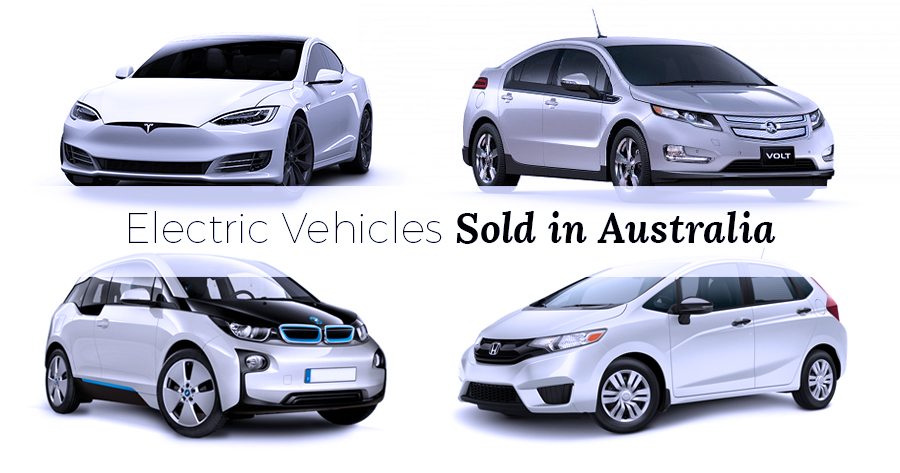Electric Vehicles Sold in Australia

Benefits of Electric Vehicles
While Electric Vehicles may seem like the new kid on the automobile block, an astounding 50% of all EVs currently on the road today were sold in the last two years alone.
This quick uptake is only expected to increase thanks to the huge range of benefits Electric Vehicles offer, especially when compared to conventional petrol/diesel vehicles.
These include:
- Substantially lower operating and maintenance costs, due to electric motors requiring virtually no servicing over the life of the vehicle.
- Reduced greenhouse gas emissions and therefore air quality improvements, thanks to zero or substantially less emissions (this depends on which type of EV you’re considering).
- Stamp Duty exemptions and reductions in registration fees thanks to government incentives.
- Increased efficiency as the electricity required to charge an EV works out to be about a third as much per kilometre as buying petrol for an equivalent vehicle.
Type of Electric Vehicles Available in Australia
There are a number of different EVs available in Australia. Classifications differ depending on the extent to which the vehicles use electricity, not petrol or diesel, as their energy source.
Hybrid Electric Vehicles or HEVs
Hybrid Electric Vehicles or HEVs, have been on Australian roads since the 2000s. While they use petrol/diesel as their main source of energy, the vehicle is supplemented with electricity.
The electric and petrol/diesel motors of an HEV are controlled by an internal computer. This computer chooses the most economical combination for the particular driving task the vehicle is undertaking, resulting in a more efficient drive.
HEVs include Plug-in Hybrid Electric Vehicles (PHEVs) and Extended-Range Electric Vehicles (EREVs).
The Toyota Prius, Honda Accord, and Lexus CT200h are all examples of hybrid vehicles sold in Australia.
Battery Electric Vehicles or BEVs
Battery Electric Vehicles or BEVs are full electric vehicles, only using electricity and no petrol or diesel for energy. As such, they produce zero direct carbon emissions.
BEVs can also be called Plug-in Electric Vehicles, as they use plugs to transfer electrical energy to charge their internal battery.
Popular BEVs available in Australia include the Nissan LEAF and Tesla Model S.
Convert a Petrol/Diesel Vehicle to Electric
You also have the option of converting the vehicle of your choice into an electrical vehicle. However, this option is understandably a lot more complicated than simply purchasing a ready-made EV, not to mention more expensive.
For more information, visit the Australian Electric Vehicle Association’s website.
EV Models Available in Australia
Unfortunately, due to a lack of government incentives compared to other western countries, only a small number of manufacturers have brought their EVs to Australia.
We’ve listed the top EVs available in Australia below, separated by classification, and in order of price.
BEVs
| Model | Type | Price | Range |
| Mahindra e2o | BEV | $13,000 | Up to 160km |
| Nissan Leaf | BEV | $40,000 | Up to 135km |
| Honda Fit Electric | BEV | $40,000 | Up to 130km |
| Ford Focus Electric | BEV | $43,000 | Up to 122km |
| Kia Soul EV | BEV | $45,000 | Up to 160km |
| Renault Zoe ZE 40 | BEV | $45,000 | 300km |
| Mercedes B Class | BEV | $45,000 | 170km |
| Mitsubishi Outlander PHEV | BEV | $47,490 | 53km |
| Hyundai Iconiq Electric | BEV | $50,000 | Up to 200km |
| BMW i3 | BEV | $75,000 | 190km |
| Tesla Model S | BEV | $100,000 | Up to 480km |
| Tesla Model X | BEV | $110,000 | Up to 489km |
HEVs
| Model | Type | Price | Range |
| Honda Jazz Hybrid | HEV | $22,990 | 4.5L/100km |
| Toyota Prius C | HEV | $23,000 | 3.9L/100km |
| Honda Accord | HEV | $29,605 | 4.8L/100km |
| Toyota Prius | HEV | $35,000 | 3.4L/100km |
| Lexus CT200h | HEV | $39,990 | 4.1L/100km |
| Toyota Camry Hybrid Atara SL | HEV | $40,440 | 5.2L/100km |
| Holden Volt | HEV | $59,990 | 2.3L/100km |
| Mercedes C-Class Plug-in-Hybrid | HEV | $75,300 | 2.4L/100km (Sedan); 2.6L/100km (Estate) |
Infinite Energy now offers Electric Vehicle Chargers designed for private, commercial and public use. If you’re interested in an investing in an EV, we can help you decide which Charger is best suited for your needs, design you a fully customised solution, and install your new EV Charger(s) with minimal fuss.
For a no obligation callback, click here.


